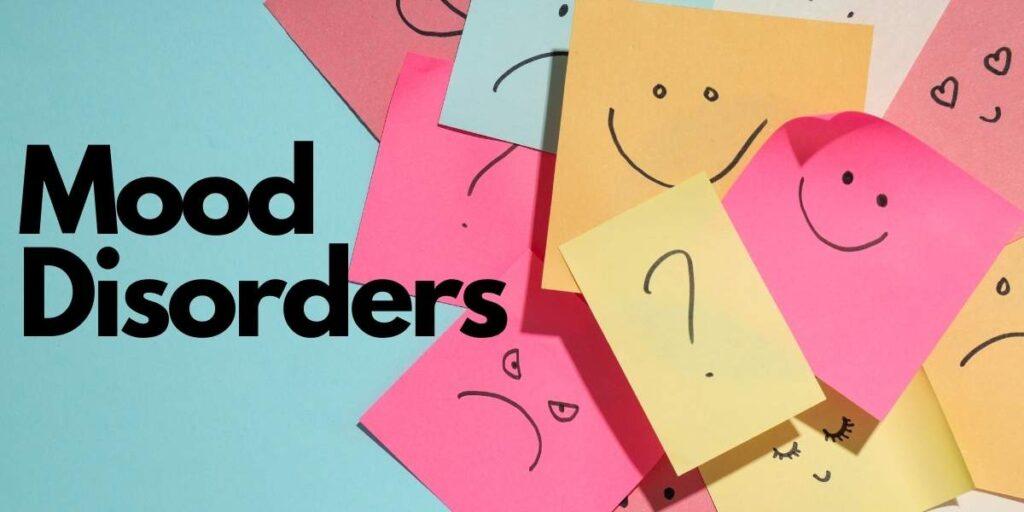
Introduction
We all have feelings. Sometimes, we feel happy. Sometimes, we feel sad. That is normal. But when these feelings persist and are prolonged in duration, it could be a sign of a larger issue. This bigger problem is known as mood disorders. Mood disorders can affect how you feel, think and behave. They can make life harder. We are going to discuss mood disorders in this blog. We will also discuss signs, causes and getting help.
What Are Mood Disorders?
What are mood disorders? Mood disorders are health conditions that involve changes or disturbances in your emotions. They can make you very sad or very happy for a very long time. Sometimes, the emotions are so intense they prevent you from leading an ordinary life.
It is not your fault you have mood disorders. They’re both legitimate medical conditions. Doctors can help make you feel better.
Types of Mood Disorders
Mood disorders come in a variety of forms. Consider a few of the most typical.
Depression
Depression is that sad feeling that you get when you have been unhappy for a long time. It’s more than just feeling blue for a day.
Symptoms of depression can include:
Feeling tired all the time
No longer interested in things you once enjoyed
Oversleeping or sleeping too little
Feeling hopeless or worthless
Bipolar Disorder
You have bipolar disorder when you have very intense mood swings. You can feel incredibly happy (this is called mania), and then you can feel incredibly sad (you can feel depressed).
Symptoms of bipolar disorder can include:
Extremely excited or full of energy
Talking very fast
Creating unrealistic big plans
Feeling sad or empty much of the time later
This is a depression that occurs at particular times of the year. It tends to occur during winter when there is less sunlight.
Seasonal affective disorder
It happens during certain season of the year, most often fall or winter.
Symptoms of seasonal affective disorder can include:
Feeling sad in winter
Sleeping more than usual
Gaining weight
Acting like you never want to go outside
What Causes Mood Disorders?
Mood disorders have no single cause. There are many factors that can explain why.
Family History
If someone in your family has a mood disorder, you are at increased risk for having one yourself.
Brain Changes
At other times, there is an imbalance of chemicals in the brain. This may lead to mood disorders.
Stress and Trauma
Mood disorders can appear after significant life changes or bad experiences. They can be set off by moving, losing someone or being hurt.
Health Problems
Such mood disorders can also be brought about by other health issues, including long-term sickness.
How to Tell if It’s Something More Than a Bad Mood
These are the signs you need to know. Early assistance can make an enormous difference. Mood disorder symptoms may include:
Low, sad, or empty most of the time
No longer taking pleasure in things you used to enjoy
Getting an insufficient or excessive amount of sleep
Feeling very tired
Having big mood swings
Feeling hopeless or helpless
Thoughts of causing harm to yourself
If you see these signs, say something to a trusted adult or doctor.
How Mood Disorders Impact Our Quality of Life
Mood disorders can turn your life upside down in more ways than one.
At School
You might have trouble focusing. Your grades might drop. Perhaps you don’t want to go to school.
With Friends
Mood disorders can make it challenging to be with friends. You may feel lonely or angry.
With Family
You might argue with family more. You might feel that no one gets you.
With Yourself
You might cease to believe in yourself. You may be tired and sad all the time.
Finding Treatment for Mood Disorders
The good news is that there is help! Mood disorders don’t have to be something you face alone.
Talk to a Doctor
A mood disorder is something that a doctor can diagnose. And they can advise and treat you.
Therapy
Therapy can help. They teach you how to feel better.
Medicine
Occasionally, doctors prescribe medication to help correct brain chemicals. Medicine can make all the difference.
Support Groups
Support groups allow you to talk to others who understand. You can vent your feelings and help each other.
How to Help Someone Who Has a Mood Disorder
If you know someone with a mood disorder, you can help.
Listen to them
Be kind and patient
Encourage them to get help
Spend time together
Letting them know they are not alone.
There are small things you can do every day to keep strong.
FAQs About Mood Disorders
What is a mood disorder?
A mood disorder is a health problem that causes you to feel different from the way you feel most of the time for at least two weeks.
Can kids have mood disorders?
Yes. Mood disorders can affect children and adults.
Are mood disorders common?
Yes. Many people have them. You are not alone.
What are the treatments for mood disorders?
They are treated with therapy, medication and the support of loved ones.
Can mood disorders improve?
Yes! People with mood problems can get much better with help.
Conclusion
Mood disorders are legitimate and can affect anyone. They can make life difficult, but there is hope. The signs may be there, the help is out there, and the support can make a difference. If you or someone you know is struggling, tell a parent or other trusted adult or consult a doctor.
You have to look after your mind the way you look after your body. It is your right to feel joyous, powerful and loved. And remember, it’s OK to ask for help. You are never alone.
